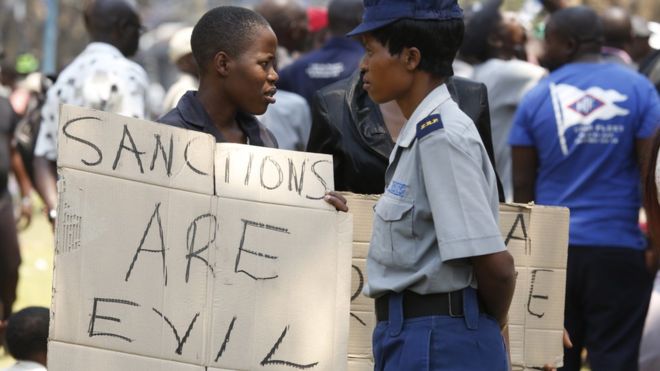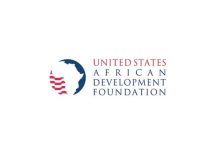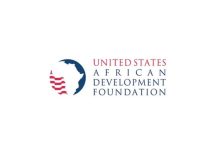Friday is a public holiday in Zimbabwe to mark a day of protest against sanctions which the government blames for the country’s economic problems.
Southern African countries have joined calls from the Zimbabwe government for the sanctions to be lifted, saying they’re damaging the region’s economy.
So why are sanctions in place and what impact are they having?
The United States and the European Union (EU) have both maintained sanctions, citing a lack of progress in democratic and human rights reforms as well as restrictions on press freedoms.
They target both specific individuals and companies.
African push for lifting of Zimbabwe sanctions
United States financial and travel restrictions currently apply to 85 individuals, including President Emmerson Mnangagwa.
There are also 56 companies or organisations facing restrictions.
“We have sanctions against certain individuals and certain corporations… not against the country of Zimbabwe. There is nothing to stop US businesses from investing in Zimbabwe, from going to Zimbabwe,” says US Assistant Secretary of State on African Affairs Tibor Nagy.
Washington says the economic impact is mostly on farms and companies owned by these designated individuals.
The US also imposed a ban on arms exports to Zimbabwe.






